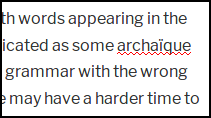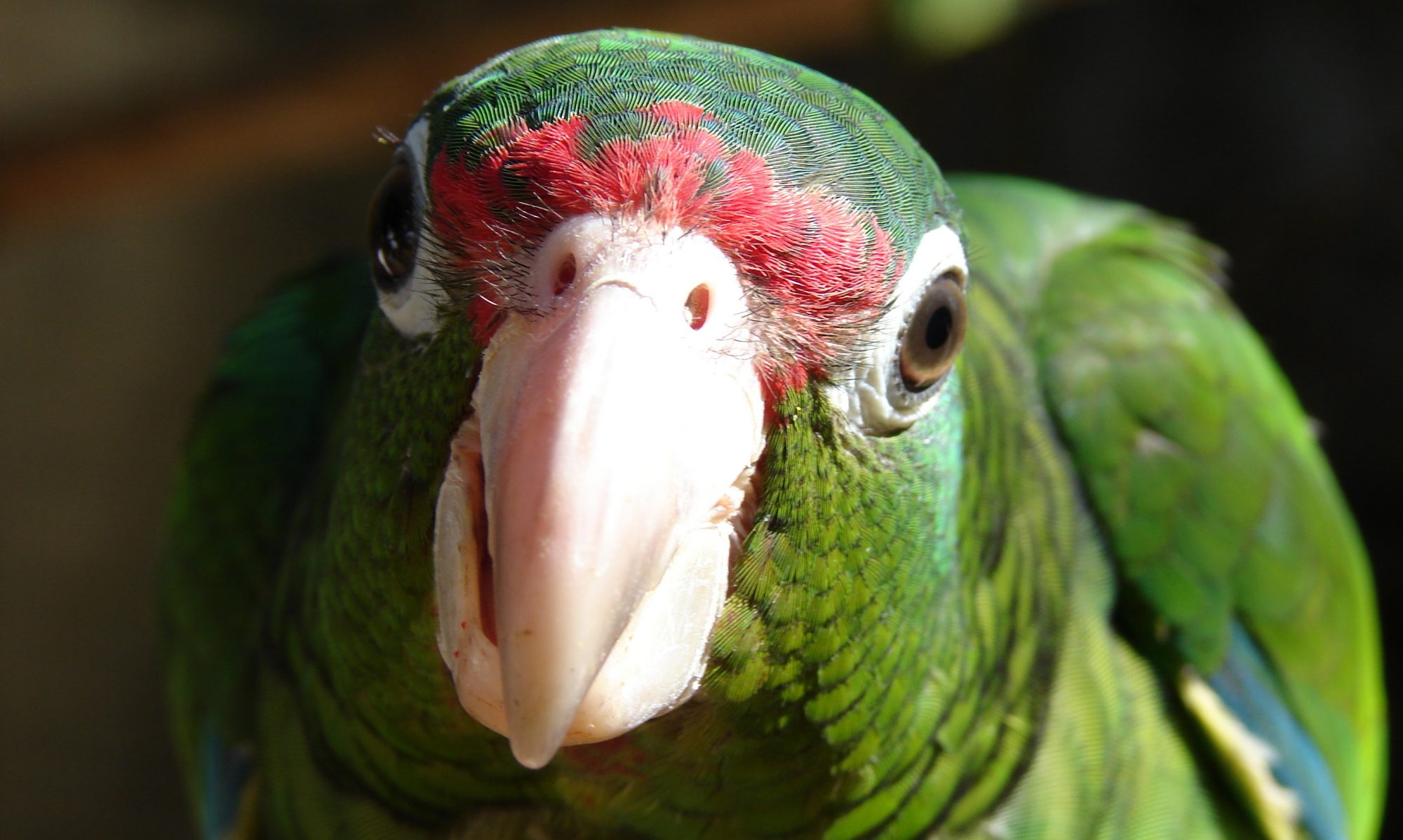There are more and more reports about Google not sending as much traffic (if any) to pages that include swear words and also that are rather negative (i.e. a long rant will get you nowhere.)
Since you are building a Niche Website, you should not have to worry about such, although if you do product reviews, think about how to talk about a product that’s not so good in a non-derogatory way*. Don’t insult the manufacturer or make fun of them. Unless you’re already big and have time on your hands to create such pages, just avoid that sort of pages altogether. If you just can’t talk about a product in a positive way, don’t talk about it. Period.
* Actually, Amazon.com also doesn’t like derogatory reviews. If for some reasons they decide to check your website closely, they could shut down your account. For them, all products are good products. It makes sense since they want to maximize their sales. Products that are not so good won’t sell much anyway and will automatically disappear.
Why Would Swear Words Have an Effect?
Now, you may wonder why Google would want to sort out pages that include swearing words. It’s actually pretty easy. Google offers a feature named SafeSearch. This is particularly useful when searching at work or for children at home.
The fact is that Google turns that feature on by default. In other words, people are automatically offered as safe environment while using Google. It may not be 100% safe, but it certainly will be pretty good 99.9% of the time with today’s technology. Finally, since the feature is turned on by default, you can bet that 99.9% of the Google users have no clue it even exists and thus they keep it on.
As a result, pages that are considered to possibly be unsafe can’t be found (are not included) in Google searches. The unsafe feature may auto-turn off if the search itself includes swearing words.
Why did SafeSearch Get Started?
The first version was not called SafeSearch. It was a way to protect Google Search users from ending up on Porn Websites and when searching images, to avoid with nudes (unless explicitly searched). According to statistics, there are quite a few porn websites on the Internet so search results could easily include such pages.
At first, Google employed many people (at times through other companies) to look at various results and tell whether it is safe or not. So it involved quite a bit of manual labor. The algorithm was constantly updated and more people would validate the results. As time passed, Google got a really good set of robots that do most of the work alone.
What is Google’s Position in That Area?
Google made statements about this problem and always clearly said that they don’t remove pages from their index because of swear words. However, they don’t seem to mention the fact that the SafeSearch filter would have an effect.
In other words, it won’t de-index your page because it’s viewed as being offensive. However, it won’t present it to most users because they will have the SafeSearch feature turned on and as a result searches will not include such pages. Obviously, this is very similar to being de-indexed.
Note also that includes images. They have robots that can determine what appears on an image. If there is text in the image, their OCR systems will convert that part of the image back to text and, as a result, they will know whether there are swear words there. Also if the image looks gore (see Violence below), has explicit sexual content, or is otherwise offensive, it will also have an impact on your page and possibly your entire website.
When I had links to pages without the “nofollow” that should have had it, my entire website paid the price, not just the invalid page. Note that makes sense since your website has links that could drive people to end up on the offensive page.
From Google’s Search Engine Quality Evaluator Guideline
The other day I also stumble on the Search Quality Evaluator Guidelines written by Google.
Chapter 14 is about this very problem with the title “Upsetting-Offensive Flag”.
They list specific content which they expect the evaluators to report as upsetting or offensive content. This include points I already included here. There is a short list:
- Promote hate or violence in words or graphics
- Various types of slur
- How-to about harmful activities such as human trafficking or assault
- Content that is offensive to the locals the website applies to (that covers a lot if the website is worldwide!)
Note that Google uses human evaluator ratings to correlate their search engine artificial intelligence (AI) with what humans think of various pages. This helps improve the AI by giving the Google engineers data to compare their results with real human results.
Now, Why Would Pages with Negative Words Not Rank Well?
At this time, I have not found a good answer to this one.
There is speculation around it that people who get a search result that sends them to a page full of negatives will get a bad day and Google is all about their users having a good day so their return tomorrow and do more searches and eventually click on an AdWord link.
For sure it has an impact, though. I have now heard from several sources that they went back to such pages and by making them more positive started to see people come to the page.
Now, my personal take on this one would be slightly different than the idea of Google knows that “a positive page makes people happy” and thus they have better send people to positive pages.
Instead, I think that this is behavioral from the actual users. That is… Google was sending people but not so many would go there in the first place because the title and description of your page already included the negative. Then the few who did go there, would start reading, feel bad as your talk is negative, and go back to Google and use another search result. This reduces your page rank automatically.
So… in other words, Google was very simply using their usual algorithm: people’s vote to know whether your page is what people were interested in or not. If so, they send your more and more traffic. With too much negative, Google automatically notices “downvotes” and starts withdrawing traffic to your site.
To my point of view, this makes a lot more sense. People, in general, prefer positivity. You’re certainly way more likely to gain another backlink (a strong vote!) if your content is positive than if it is negative (there may be an exception with politics, though…)
Are There Any Other Types of Dangerous Content?
Yes. Quite a few actually.
False News
This is probably the main one that Google said they would work on.
If you create a website such as The Onion, you’re certainly fine. Although I’m not too sure how Google can distinguish between a fun site such as The Onion and an actual False News site. Certainly a neat engineering feat!
Defamation
I’ve read that Google would attempt to remove pages that are clear defamation. I’m not too sure whether that really works. At least when a defamation goes viral, it seems to appear in Google Searches just fine.
The problem with Defamation is that some people will use such a technique to sentence someone without a proper trial. Whether the person did or did not do whatever is being put out, the verdict is guilty. Therefore, it is pretty much a legal requirement for a company like Google to try to minimize such trials.
Affiliate Links
A page that has affiliate links without the rel=”nofollow” attribute may end up being de-indexed. I have a page about is: Do You Know of The One Thing Google Really Doesn’t Like?
Watch out for that one since you own a Niche Website that is going to be littered with affiliate links! All of them will need to rel=”nofollow”. If you are using a CMS like WordPress, you can simply install a plugin to make sure that all links get that attribute and thus makes it safe for you.
Links to the Wrong Sites
This is a similar problem to the Affiliate Links above.
Google actually views links to certain pages as a strong negative. I mentioned the Parked Domain Name below. But Google doesn’t link your external links to just parked domain names. It disavows your website if you link to places like hacker websites, pure advertising pages, and other websites that themselves have such invalid links. Note that I have had that problem and the Google Search Console system sent me an email, this is why I very strongly recommend you get a Google Search Console account! They will let you know of all sorts of problems they notice on your website.
To be safe, all your external links should use the rel=”nofollow” attribute. Only remove that attribute if you are sure that the destination website is worth your SEO juice (i.e. Wikipedia is a good example of a website where sending link juice is fine.)
Pure Advertising
I mention that problem in my post about Can I Put Ads on my Niche Website?
Here you will get three main issues:
- Many times, sites that just put advertising on their pages will have no or nearly no content
- The page will be very slow to load, this is a pretty strong factor as far as Google is concerned (i.e. the difference between a page that loads in 100ms or 20 seconds.)
- As a result, the page does not have a clear subject (remember that the ads are expected to be ignored since they are not real content in the first place.)
In the past, we had some interesting endeavors. One person created the One Million Dollar Page, which is still around, offering people to purchase one pixel on his page for $1 each. If your ad was 40×40 pixels, then you’d pay $1,600. Simple!
Note that quite a few porn websites bought pixels! Also, many websites have disappeared since then, although they will most often redirect to their new pages.
Parked Domain Names
Whenever you purchase a domain name just in an attempt to make money selling it back later, you most often park that domain name with a website that offers users to send you offers.
Links to such pages are forbidden if they don’t include the rel=”nofollow” attribute. This is very similar to the advertising problem above.
Violence
Google mentioned that they would not index particularly violent websites. Note that this is in link with terrorism. I think that many websites including references to violence are still indexed as normal. However, just like the use of negative words, they are likely to be low ranking because most of us are not drawn to violence.
Note that this can have an effect if you are an author and you wrote a story which is rather violent. That being said, your readership is probably going to find you anyway because they will use keywords that most of us would not include in their search.
Illegal Matters
A long time ago, Google said that they would not include websites that talk about things that are highly illegal. For example, websites that explain how to kill someone and make it look like a suicide… are likely to be removed from the index.
There are many things that would be included in this category. How to build a nuclear bomb, how to build a firearm, how to create poison gas such as mustard gas (that one that nearly killed Hitler in World War One,) and highly illegal drugs.
Again, it is not unlikely that such pages are still indexed but get a very low ranking because most of us have other things to do than build a nuclear bomb or poison gas. So these pages could certainly be found, just not easily using Google.
Speaking of that, I’ve noticed that I can get to all sorts of websites using Twitter that I just never ever find with Google. That’s certainly part of those that Google does not index highly…
What to Expect Next?
I think that, at some point in the future, the Google Artificial Intelligence Robots used to analyze your page content are likely to give you a grade based on how well the content is written (See Matt Cutts video below for how it happens at this point.)

If it includes a lot of misspelled words, sentences with words appearing in the wrong order (although at times in English it’s complicated as some archaïque ways use the order in which we write in French, which is swapped compared to English!), and bad grammar with the wrong plural or the invalid tense for a verb, etc. then Google may have a harder time to give you a high rank.
It may not feel like it to you, but sending someone to a website to read paragraphs stuffed of syntactically or grammatically incorrect sentences is not sensible for a Search Engine. As of 2018, Google doesn’t do that yet although I rarely end up on a very badly written web page… because it’s going to have a bad Page Rank (note that it could be that, in general, badly written web pages have a low rank for other reasons than just grammar and spelling.)
It is also easy to check your grammar with Grammarly if you write in English. You can start with their free account offer. That way you can copy/paste your content there and have it verified by their software. It’s very powerful. I use it now and it gives me a chance to fix my French (i.e. for example, I often say “in this page” instead of the correct English wording: “on this page”.)
It may be harder to verify your grammar in other languages, as tools to do so are not readily available in all languages, however, 99% of the time, spelling is something you can fix as you type. It’s very easy to see the words where the red underline appears and just fix them as you go. See my figure above.
At this time, Google sends people to those pages and it always notices a distaste and thus drops the ranking of the page to a very low level (or never raise it.) Remember that your title and description or parts of your content will appear in the SERP. That means the person (human) who sees the result of the search can immediately know whether it’s good writing or not and if they can’t read those couple of sentences, they will simply ignore that result altogether by not even clicking on the link. In other words, votes by humans can be used to determine whether a page is well written or not. Humans don’t like to read horrendously written content (and many probably don’t like to read my long sentences…)
If English is not your first language and you haven’t had enough practice with it, you may want to consider hiring an editor who is so they at least review your writing before you publish it. That way, you’re more likely to get somewhere with your Niche Website.
Matt Cutts answers a question about Google Search and Grammar:


As the article mentions, it very much depends on your content. There is, I’m sure, people who will be interested in reading websites with swear words and other such “bad things”.
It’s not even whether there would be a limit of some kind, more like there are different type of websites. A bit like we have ratings for movies. Some are for very little kids, 13+, 18+… I think that it’s generally easier to deal with a site that aims at all people, including younger ones.
Is it true that using swear words or negative language on my niche website can actually harm my SEO ranking and deter potential affiliate partnerships? How can I effectively convey my message without resorting to controversial language?”,
“refusal